
Arquivo para a ‘Antropotécnica’ Categoria
Language, being and reconciliation
Since ancient philosophy, language has been considered ontologically linked to Being, Plato’s World of Ideas (eidos) is nothing other than this, for Aristotle language is a “tool” of thought that allows us to represent reality.
been considered ontologically linked to Being, Plato’s World of Ideas (eidos) is nothing other than this, for Aristotle language is a “tool” of thought that allows us to represent reality.
However, modernity, under the pretense of realist objectivity, has ignored this simple reality where any action begins with thought and is transformed into language, in the words of contemporary thinker Heidegger, language is the “dwelling place of being”.
The “language of machines” or the codification of thought already expressed in a human “message” and transformed into codes, is not exactly what should be thought of in ontology, all of Heidegger’s texts and also those of the philosopher Byung-Chul Han complain about this technical view of language, but the 20th century began with the so-called linguistic turn.
Thus, the language thought of by Alan Turing and Claude Shannon is confined to the universe of machines, while language thought of ontologically is the “opening up of being” and the search for a universe of fulfillment and reconciliation, as Rainer Rilke (1875-1926) says: “We, the violent, last longer. But when, in which life, will we be finally open and welcoming?”
Byung-Chul Han recalls that the epic poem Iliad begins with the phrase: “Aira, Goddess, celebrates Achilles’ wrathful rage, which brought so many sorrows to the Achaeans, and cast countless souls into Hades.” We’ve already written several posts about the myth of Hades, the god of the underworld where souls go, and violence still marks our civilizing process.
Language as an expression of our thoughts and our interiority cannot be separated from active life (Hannah Arendt and Byun-Chul Han). Heidegger, who had a strong influence on both of them, sees it as a bridge linking the inside and outside of man, in such a way that speaking is thought of as an activity that takes place through man and is thus an ontological act (photo – A mural in Teotihuacan, Mexico, c. 2nd century).
This vision of language “through man” thus precedes its dissemination by the media and cannot be thought of as mere transmitters and receivers, since whatever the medium, it is preceded by human thought and language and in it the being “opens up”.
It can therefore be said that violence is an aspect of the lack of openness of being, motivated by thought and this is constructed by methodologies and ways of understanding reality as having a single path to violence where reconciliation may seem impossible.
Man and reality itself are not binary: Being and Non-Being, affirmative and negative, in man because he has sensitive and cognitive inner stages where the engines of thought are activated, and in reality because of the discoveries of quantum physics and the complex universe that astrophysics has created.
Thinkers with full bellies
Modern society is characterized by an absence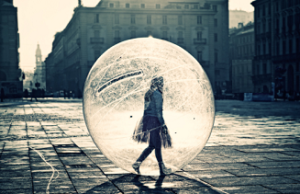 of serious developed thought. What is called “critical thinking” is nothing more than the rejection of any thinker who tries to think outside the ideological bubble, or of vulgar and superficial narratives.
of serious developed thought. What is called “critical thinking” is nothing more than the rejection of any thinker who tries to think outside the ideological bubble, or of vulgar and superficial narratives.
They don’t know about the great classical works, even those professed by Kant, Hegel or Marx, deep literature by Zolá, Vitor Hugo, Proust, Balzac, Camus or more current ones like George Orwell, James Joyce, Gabriel Garcia Marques or Jorge Luís Borges, Eurocentric in their shallow knowledge, preferring the contentless criticism of thinkers who challenge all current thinking as fragmentary: Heidegger, Gadamer, Peter Sloterdijk and Byung-Chul Han.
Their bellies are full of food that fills their stomachs, but it’s far from being the kind of food that provides a deep and well-founded critique of current thinking: decadent sociologism, little meditation (read Hannah Arent or Byung-Chul Han on the Vita Contemplativa) and little knowledge of even the late Enlightenment that they profess.
At most, they know Bauman’s liquid and Eurocentric thinking, Foucault’s biopolitics or Jean Jaurès’ revisionism, they don’t know Edgar Morin’s transdisciplinarity (he calls this partial intellectuality blind intelligence), Barsarab Nicolescu’s third-included and the quantum physics revolution (it’s no longer a binary dualism), thought is dated in modernity, and they don’t know its origin in ancient Greece.
It is necessary to deny authors who propose new paradigms so that their narrative, based on authors from the last century, is coherent. At best, they talk about original cultures without knowing the great modern African and Latin sociologists such as Achille Mbembe, Franz Fanon and Anibal Quijano.
The belly is full of a culture that is already outdated, even without the necessary updating and without a complete reading of the works on which the positions are based, the psychopolitics of Byung-Chul Han, the spherology of Peter Sloterdijk (Sphere I: bubles) and the transdisciplinarity of Morin cannot be understood, it is a shallow and incomplete revisionism due to the fragility of the readings.
The easy criticism and consequent narrative are based on the chaotic social and cultural scenario we face, without a complete and radical analysis that escapes the bubbles we are trapped in, that understands and updates thinking beyond idealistic dualism.
In fact, we need a few words and thoughts, but profound ones that are forgotten or dormant: what kind of hope do we have for today’s society? What kind of beliefs do we have that don’t involve power and domination? What kind of science is it that deals with the whole man so that it can also deal with every man? What is our relationship with the Other? (Lévinas, Ricoeur, Buber and others).
Without reading Thomas Aquinas, they will remain readers of only one book, without reading St. Augustine, they will not come out of Manichaeism, because evil is the absence of Love and Forgiveness.
Han, Byung-Chul. (2019) O que é poder? Trad. Gabriel Salvi Philipson. Brazil, Petrópolis, RJ: Vozes.
Sloterdijk, Peter. (2019) Esferas I: Bolhas. Trad. José Oscar de Almeida Marques. Brazil, São Paulo: Estação Liberdade.
Morin, Edgar. (2015) Introdução ao pensamento complexo. Trad. Eliane Lisboa. 5.ed. Brazil, Porto Alegre: Sulina.
Beyond pain: choosing life
No to war, hatred and indifference means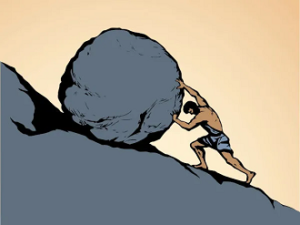 going beyond pain. It is often difficult to go through differences of opinion, conflicts of culture and even ideologies, but this is exactly what pain implies as a normal contingency of life.
going beyond pain. It is often difficult to go through differences of opinion, conflicts of culture and even ideologies, but this is exactly what pain implies as a normal contingency of life.
Byung-Chul Han, in his analysis of painkillers, describes permanent anesthesia as one that limits not only feelings: “Pain is stopped before it can set a narrative in motion” (p. 72), and also: “Hell is just like a palliative well-being zone” (p. 73).
“Today, we are not willing to expose ourselves to pain. Pain, however, is a midwife to the new, a midwife to the entirely other” (p. 73), so it leads to an encounter and to life, ‘it allows only the prose of well-being, that is, writing in the sunlight’ (idem).
In the inability to understand pain as a process of change, it is often replaced by resilience, which can make sense with great obstacles or a great effort to overcome a certain circumstance of pain, but in many cases, it is just a stubbornness with situations that lead to true happiness, what Sloterdijk calls a “society of exercises”, efforts that do not lead to overcoming.
The Greeks had the myth of Sisyphus (we’ve already posted about this, see the image), a cunning king who defied Death and Hades, resulting in his being condemned to eternally push a stone to the top of the hill, Albert Camus has a book that talks about this and updates the theme.
True resilience understands that there is a new path, a pain that “midwives the new”.
When the people complained about the passage from Egypt to the promised land, saying that they missed the onions and leftovers they ate as slaves to Pharaoh, Moses rebuked them and said (Deuteronomy 30:19): “I take heaven and earth as witnesses against you today that I have set before you life and death, blessing and cursing. Choose life, that you and your descendants may live…”, indicating the path to freedom and the building of their nation.
Facing difficulties, pain and even afflictions in difficult times certainly requires resilience, but it cannot be confused with error, sheer stubbornness or “exercises” that lead to nothing and do not favor finding happiness.
Han, B. C. (2021) Paliative Society: pain today. Transl. Lucas Machado, Brazil, Petrópolis: Ed. Vozes.
Pain and ashes
The period of Lent is the 40 days after Carnival, as it was already part of the early church, coming from the Easter of the Jews, it is before Carnival, it recalls the Jewish Easter (Pesach), which has the meaning of passage or liberation, remembering the period when they were slaves in Egypt.
as it was already part of the early church, coming from the Easter of the Jews, it is before Carnival, it recalls the Jewish Easter (Pesach), which has the meaning of passage or liberation, remembering the period when they were slaves in Egypt.
Christian Easter is a renewal, it recalls the death and resurrection of Jesus. We are reading and remembering the book by Byung-Chul Han (who is not a Christian) where he talks about the ontological meaning of pain and its current erasure, clarifying: “we live in a society with increasing loneliness and isolation” (Han, 2021, p. 59).
The author quotes Viktor von Weizsäcker in his essay “The Pains”, where he characterizes pain as a “truth that has become flesh”, as a “becoming flesh of truth” (p. 61), and also “Everything that is true is painful” (idem).
Society without truths, says the author in the following passage, is “an unparalleled hell”, and “pain can only arise where true belonging is threatened. Without pain, then, we are blind, incapable of truth and knowledge” (p. 62).
So in Christianity and Judaism, the ashes and Passover as a way of of 40 days, appear to remind us of the dust we are and the path of salvation and belonging we must follow: “pain is distinction [Unterschied]. It articulates life” (pg. 63), ‘it marks boundaries’.
“Pain is reality. It has a reality effect. We first perceive reality in the resistance that hurts. The permanent anaesthesia of the palliative society derealizes [entwirklicht] the world” (p. 64) and ‘reality returns in the form of a viral counter-body’ (p. 65) wrote the author because it was the period of the pandemic.
So the ashes and the period of Lent for Christians is to renew the period of Jesus’ passion as its apex in Holy Week, where there is the apex of the pain of crucifixion and the apex of renewal that is his resurrection, Christians or not, this is the true and real logic of life.
If we don’t understand this, we become paralyzed by the pain of hatred, wars, indifference, various types of injustice, the exclusion of the Other, in short, the non-life that all this senselessness of pain causes, and so it is necessary to remember the dust of ashes, everything that passes and that only makes sense if we understand pain not as an end, but as a passage to life.
Han, B. C. (2021) Paliative Society: pain today. Transl. Lucas Machado, Brazil, Petrópolis: Ed. Vozes.
The civilizational malaise
The Burnout Society is also a society that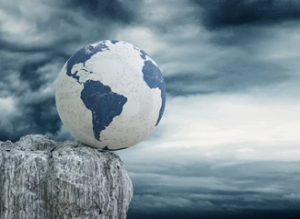 led adults, young people and adolescents to psychiatrists or alternative methods, and to those who have few resources, it led to closed groups with sometimes dubious social conscience.
led adults, young people and adolescents to psychiatrists or alternative methods, and to those who have few resources, it led to closed groups with sometimes dubious social conscience.
The number of mental illnesses in children and adolescents should pay attention to this situation.
It is no coincidence that Freud wrote at the beginning of the last century about this “Civilization’s malaise” (Freud, 1930) the author will not discuss the psychic issue itself, but the distant one between instinctual impulses and civilization, that is, contemporary culture that takes man to his opposite as much as nature and his well-being.
Intolerance to errors, even scientific misunderstanding, the demand for effectiveness in all fields, the lack of empathy and love in everyday life and in particular, of values that are natural and lead to true human asceticism, takes emotional and social conflicts to dangerous limits.
By detecting this evil, Freud himself, the founder of psychiatry, did not take humanity to the couch, and I feel he pointed out that there are cultural evils and these must be remedied first, that is not what was done, in this sense Sloterdijk is right, human “domestication” was possible (Rules for the human park), which caused great discussion in Germany in the months of September and October 1999.
Even if religions themselves live on this civilizational evil, the true asceticism that is climbing the mountain of wisdom with values that support this asceticism on one’s feet is necessary to reach a true civilizational stage, it is necessary to “love in absence” it is necessary to aim for the true values that lead to plenitude and to true and unique comfort, empathy and love.
When we remove this from society, it begins to move towards isolation, hatred and conflicts and “malaise” are just the consequences of the absence of this “natural” state, but a plant only evolves if cared for in its natural conditions: adequate fertilizer, water and sun.
Wisdom, serenity and balance are possible remedies for the current warlike spirit.
Freud, S. (1974) O mal-estar na civilização (1930 [1929]). In: ______. O futuro de uma ilusão, o mal-estar na civilização e outros trabalhos (1927-1931). Direção geral da tradução: Jayme Salomão. Brazil, Rio de Janeiro: Imago, p. 73-171. (Brazilian edition of complete Works of Sigmund Freud, 21)
Delay and the meaning of life
Just like any appreciation of art, any narration that is not a fragmented narrative, requires a sense of appreciation, sensitivity and empathy and this means a delay in the time of view, Byung-Chul Han wrote: “the world is loaded with meaning. The gods are nothing more than bearers of meaning” (Han, 2016, p. 25), I’m not looking at life as a pantheist here, but dialoguing with any possibility of contemplation.
narration that is not a fragmented narrative, requires a sense of appreciation, sensitivity and empathy and this means a delay in the time of view, Byung-Chul Han wrote: “the world is loaded with meaning. The gods are nothing more than bearers of meaning” (Han, 2016, p. 25), I’m not looking at life as a pantheist here, but dialoguing with any possibility of contemplation.
The masters of contemplation were masters of taking their time and “appreciating” life (read Vita Contemplativa by Byung-Chul Han), for this appreciation we must go against the current world where “narrative creates the world of nothingness” (p. 25).
Han reveals the relationship we have with the senses today: “Here [and now] everything has meaning is the eternal repetition of the same, the reproduction of what has already been, of the imperishable truth. This is how prehistoric man lives with a present that lasts” (Han, 2016, p. 26), a present that is not an update but a repetition, which is why there is confusion with the virtual, which in the etymological sense of the word is that which is already potential, and not the same.
Its deeper meaning also reveals the post-truth: “time will be defactified (defaktiziert) and, at the same time, denaturalized (entnaturalisier) (Han, 2016, p. 28) and the revolution today refers to a defactified time, i.e. a return to previous models that do not correspond to current problems and realities, which is why it is necessary to falsify it.
Byung-Chul separates the time of orality from history by understanding “the mythical that functions as an image”, and sees the history of the Gutenberg galaxy as one that “gives way to information” (Han, 2016, p. 30), to give it an unprecedented definition: “in reality, information presents another paradigm. Within it dwells another very different temporality. It is a manifestation of atomized time, of a time of points (Punkt-zeit)” (Han, 2016, p. 31), without having read Stephen Hawking’s ‘information paradox’ as a prediction of ‘energies’ escaping from the black hole.
It is necessary to separate the cosmological reality of this information, the megatelescope James Webb detected these “energies” from the reality of atomized and fragmented information, there is no contextualization of thought, its etymology and its contextual meaning, a world of denaturalized “information” as Han points out.
All this isn’t philosophy, it’s the daily information consumption of haters, opposed to the culture of peoples and nations, due to its fragmentation and the lack of a meaningful narrative.
That’s why anxiety, the consumption of low-level information, isn’t just disinformation, because those who proclaim it don’t look for the etymological, social roots of the thoughts they have constructed and which can make sense of them.
*defatikiziert: could be translated as in-fact, but the translator was careful to change it (de is “not”).
Han, Byung-Chul. (2016) O Aroma do Tempo: um ensaio Filosófico sobre a Arte da Demora, Lisbon. Ed. Relógio d´Água.
Pain today
This is the subtitle of the book: “The Palliative Society: Pain Today” by Byung-Chul Han, which outlines the new control that reigns over minds: “Be happy is the new formula of domination” (p. 26).
Society: Pain Today” by Byung-Chul Han, which outlines the new control that reigns over minds: “Be happy is the new formula of domination” (p. 26).
It’s not just rulers or local authorities who proclaim this, churches and coaches also promise this, they are the new sellers of illusion, parents want to prevent their children from frustration and difficulties: “my child won’t go through what I went through”, “I want to give them every assistance and comfort”, but life is made up of frustrations, obstacles and setbacks.
Positive psychology wants to avoid any change: “not revolutionaries, but motivation trainers take the stage, and take care that no discontent [Unmut] arises, but no anger [Mut]” and Byung-Chul Han recalls a relevant historical fact: “On the eve of the world economic crisis in the 1920s, with its extreme social oppositions, there were many workers’ representatives and radical activists who denounced the excess of the rich and the misery of the poor” (pg. 28). 28), pointing out that the word “mut” in German is also courage, so as not to confuse the translation anger with hatred.
He reminds us that “social media and computer games also act as anesthetics” (p. 29), asking a young man why he uses computers so much, he replied “I relax”, but this is the counterpoint to a society of anxious, immediate, depressed and self-centered people.
The essence of this type of “happiness” is objectification: to buy a new piece of furniture, a new car, to change their house, to have an advanced cell phone and, for the poorest, a pair of branded sneakers or a designer shirt; if this is impossible, they will choose idols that embody “thinghood”.
While “true happiness is only possible if it is broken. It is precisely pain that protects happiness from objectification. Pain carries happiness. Painful happiness is not an oxymoron. All intensity is painful. Passion links pain to happiness” (Han, 2021, p. 31).
And there is no greater pain than giving oneself to others, George Bernanos wrote: “Knowing how to find joy in the joy of others is the secret of happiness, French writer and journalist at the beginning of the 20th century, he was a soldier in the French resistance in the Second World War and wrote ‘France against robots’ and ‘Dialogues of the Carmelites’ which is a kind of ‘reverse mysticism’.
For the Greeks, the good life was not a state, but a continuous quest, which they defined as happiness, but they did not abandon contemplation, wisdom and reason in order to live well.
“The society of survival loses all meaning for the good life. Even enjoyment [Genuss] is sacrificed to health elevated to an end in itself” (pg. 34), so what it actually leads to is a painful life of striving for survival, at least for the average person, although of course there are exploiters, millionaires and the powerful who also eagerly seek profit and a ‘happier’ survival.
Han, B.-C. (2021) A Sociedade Paliativa: a dor hoje. Brazil, Petrópolis, RJ: Editora Vozes.
The salvation of beauty
Harmony and peace have a profound relationship,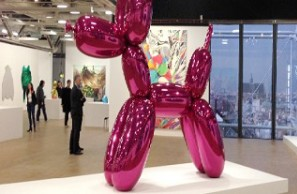 just look at what countries look like before and after wars, just look at cities and even rivers and forests in a war zone.
just look at what countries look like before and after wars, just look at cities and even rivers and forests in a war zone.
It’s not a question of locking up regions of the planet, through climate and environmental change the impact on all of creation is immediate, because even if we want to live in a bubble, contact with the air, water and riches is impossible to notice.
This also applies to culture and politics. Everything seems to be a reflection of the mistreatment and lack of sensitivity to what is truly beautiful and in harmony.
For Hegel, according to his vision of aesthetics and therefore of beauty, it is science that deals with artistic beauty and not natural beauty. For him, natural beauty is the product of the spirit (Geist), and, being its product, it is part of the truth and of everything that is in nature.
Sculpture is considered a “noble” art, says Hegel: “Sculpture introduces God himself into the objectivity of the external world; thanks to it, individuality manifests itself externally through its spiritual side” (Hegel, 1996, p. 113), again the exterior is objective, a sculpture and not a Being, the other and with him all his subjectivity.
Symbolism, on the other hand, is what “seeks to achieve the union between inner meaning and outer form, that classical art achieved this union in the representation of the substantial individuality that addresses our sensibility, and that romantic art, spiritual by essence, surpassed it” (Hegel, 1996, p. 340).
For the German-Korean philosopher Byung-Chul Han, who wrote Die Errettung des Schönen (The Salvation of Beauty), a new thread runs through the question of beauty, with what he has called in other books the “lack of negativity of our age”.
We are in the age of plastic, glass and the smooth, “imperfection” is part of creation and so it is not the Greek beauty, the new forms that contemporary culture seeks, that we will find a new culture and a creative way of relating to nature.
Subjectivity is confusingly smooth, without interiority and difficulties (Chul-Han’s palliative society), it submits to a simplism that wants to smooth and polish everything, therapies to overcome fear, anguish, even religious worship is repetitive and pure “indoctrination”, readings without any hermeneutics and full of old and outdated exegesis, just as lectures should entertain and not teach, means of communication are confused with their ends (which is para-communication).
Contact with the beauty of nature is changed by its “domination”, “exploitation” and then an attempt is made to restore it by “purifying” the natural with cement, stone and violence, Han gives as an example the art of Jeff Koon, (see photo above) of the art of Jeff Koon (see photo above) of plastic figures “idealized from the inside and the form on the outside.
Han, B.C. (2015) Die Errettung des Schönen (A salvação do Belo), DE: Fischer Verlag.
Hegel, George W. (2001) Cursos de estética. Brazil, São Paulo: Edusp.
Nationalism, fear and war
It’s not the first time in history that fear has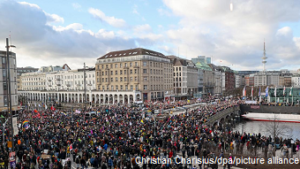 taken hold of society, various mental illnesses such as depression and panic disorder have appeared, and societies seem to be closing in on each other, much to everyone’s surprise. Germany, always so far ahead, has seen the advance of the AfD (Alternative for Germany), which is the return of the ultra-right.
taken hold of society, various mental illnesses such as depression and panic disorder have appeared, and societies seem to be closing in on each other, much to everyone’s surprise. Germany, always so far ahead, has seen the advance of the AfD (Alternative for Germany), which is the return of the ultra-right.
The problem of immigration in Germany has now come to the fore, under the protest slogan “we are the cordon sanitaire”, when it happened an anti-immigration motion and a narrow vote on the Migration Flow Act, criticized the candidate for German Federal Chancellor, Friedrich Merz, of the Christian Democratic Union (CDU), led to demonstrations across the country.
The candidate is the front-runner to take over the German government in the February 23 election, although he is conservative and distances himself from the AfD’s ultra-conservative pretensions.
The significance of these movements, laws and the growth of increasingly conservative positions is a reaction to the sense of the crumbling of the civilizational roots of the various societies and a growing movement of moral and political deterioration of social institutions.
This is not a comfort zone, but a “safety zone” in the face of the ever-present threat of an unprecedented civilizational crisis, and without an element of peace and hope that can mitigate these processes of unrestrained changes in customs.
Fear is when the moral reserves of hope and faith in the future shrink, both on a personal and social level. Young people who prefer to shut themselves away and stay “hidden” at home are a reflection of this “safety zone”, while those who go out abandon any limits.
In addition to combating extremism, the forces of peace must also sow peace and hope and reduce frontal attacks on extremism, which only strengthen it.
Not being afraid is also an important ingredient in these “battles”, showing serenity and calmness in the face of adverse situations helps to minimize the effects of intimidation and harassment that characterize extremist forces, they feed on fear and violence.
The true nuclei of hope are inclusive, they are not motivated by provocations or narratives that defend their positions as the only true ones, it is not about relativism, but about enlightenment and deactivating the fear that characterizes the most closed societies.
Only peace between peoples can guarantee the hope of a healthier and more fraternal world for all.
Narrative, language and communication
Korean-German philosopher Byung-Chul Han says: “Today we live in a post-narrative time. Not narrative [Erzählung], but counting [Zählung] determines our lives.” (Han, 2023, p. 48).
says: “Today we live in a post-narrative time. Not narrative [Erzählung], but counting [Zählung] determines our lives.” (Han, 2023, p. 48).
To better understand this sentence, just for didactic purposes we have categorized the literary genre into 3: narrative or epic, lyrical and dramatic, the narrative is linked to the “telling” (zählung) of a story and therefore not should be confused with the actual narratives (Erzählung, in German), see that they are differentiated by the prefix “Er”, so the telling must have a narrator, a plot, the characters in time and space, that is, in a context.
Lyric is also a genre that refers to texts with subjectivity and connotations, they can be in prose or verse, but they are also a different type of storytelling from modern narratives, many authors complain about the lack of poetry, and Heidegger pointed out that this is another function of language.
The dramatic text is also a genre in which acts, scenes, rubrics and lines are presented, so it is part of a theatrical form or a-presentation, in the sense that the presentation is both a telling of a story and its negation, since it involves fiction.
The dispute between nominalists and realists in the lower middle ages (11th to 14th centuries) ended up neglecting the importance of language, but the linguistic turn of the late 19th century brought its importance back to the forefront.
The beginning of modernity is marked by the rupture between the metaphysical function of language and the use of objectivity as a mode of expression, but this is only one of the functions of language. The Russian linguist Roman Jacobson recalls the functions: phatic, poetic, conative and metalinguistic, in which modern codes are inserted, for example: Morse, digital and quantum, where “the code explains the code itself, that is, the language explains the language itself”, and this must be the only context where the concepts of sender/receiver apply.
The linguistic turn occurs in the midst of the crisis of idealist and positivist thinking in modernity: Husserl, Heidegger, Hanna Arendt are fundamental, although they are most remembered: Noam Chomsky, Mikhail Bakhtin, Michel Foucault and Ferdinand de Saussure.
Returning to Byung-Chul Han’s initial quote: “Narrative is the capacity of the spirit to overcome the contingency of the body”, this capacity to overcome the contingency of the body is linked not only to the memory of poetic and conative language, but also to the spiritual meanings and values that modernity has abandoned under the pretext of creating an “objective” vision.
The telling of the stories of peoples, their cultures and religions are thus key factors in overcoming such a dramatic moment in the history of communication, where communication itself, the fruit of millennia of evolution in human culture, seems to be in question.
Proclaiming words, stories and beliefs is a universal right, attempts to prevent these rights is not only a motivation for divisions and hatred, it is fuel for wars.

